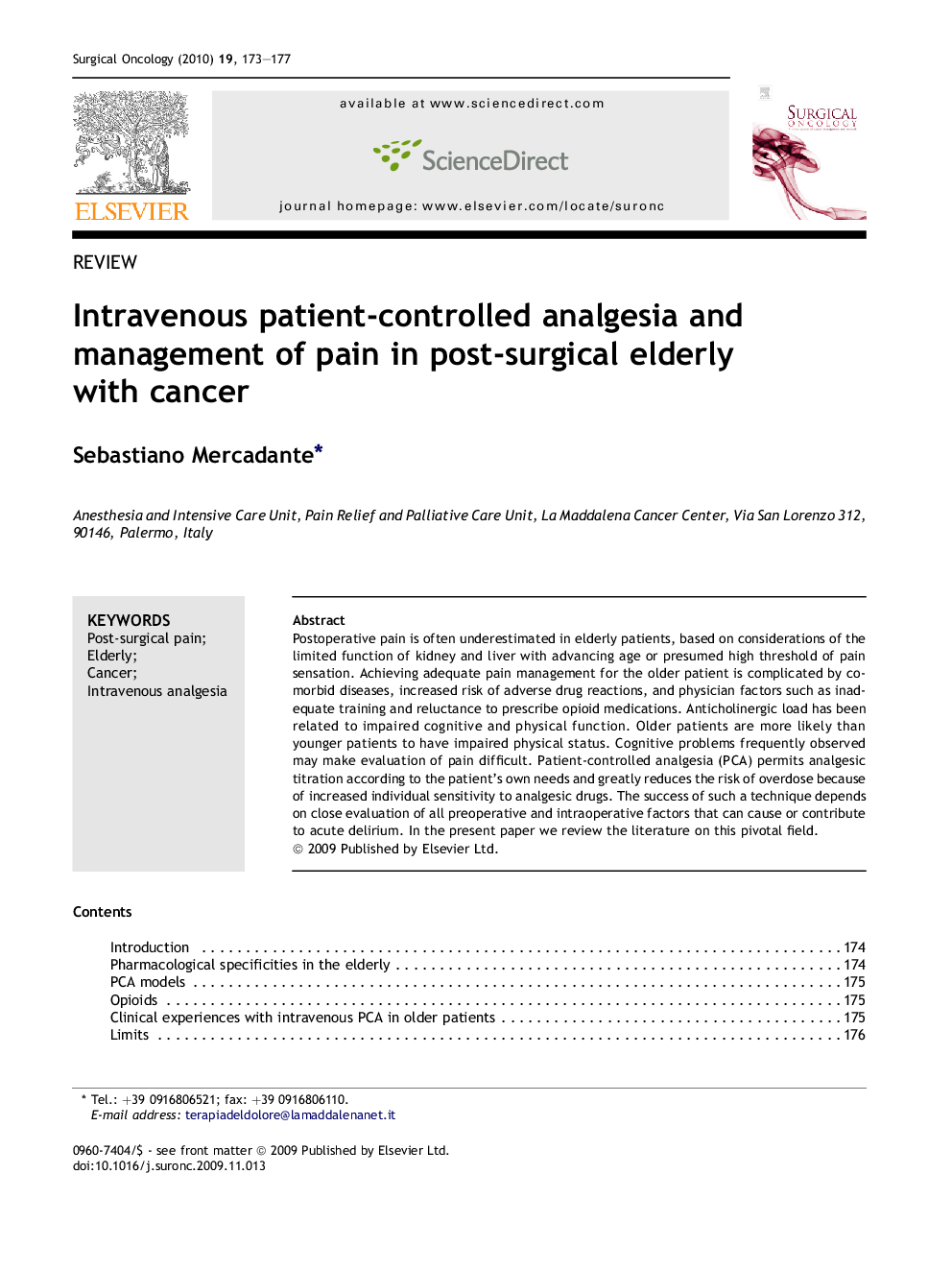| Article ID | Journal | Published Year | Pages | File Type |
|---|---|---|---|---|
| 3998090 | Surgical Oncology | 2010 | 5 Pages |
Postoperative pain is often underestimated in elderly patients, based on considerations of the limited function of kidney and liver with advancing age or presumed high threshold of pain sensation. Achieving adequate pain management for the older patient is complicated by comorbid diseases, increased risk of adverse drug reactions, and physician factors such as inadequate training and reluctance to prescribe opioid medications. Anticholinergic load has been related to impaired cognitive and physical function. Older patients are more likely than younger patients to have impaired physical status. Cognitive problems frequently observed may make evaluation of pain difficult. Patient-controlled analgesia (PCA) permits analgesic titration according to the patient’s own needs and greatly reduces the risk of overdose because of increased individual sensitivity to analgesic drugs. The success of such a technique depends on close evaluation of all preoperative and intraoperative factors that can cause or contribute to acute delirium. In the present paper we review the literature on this pivotal field.
